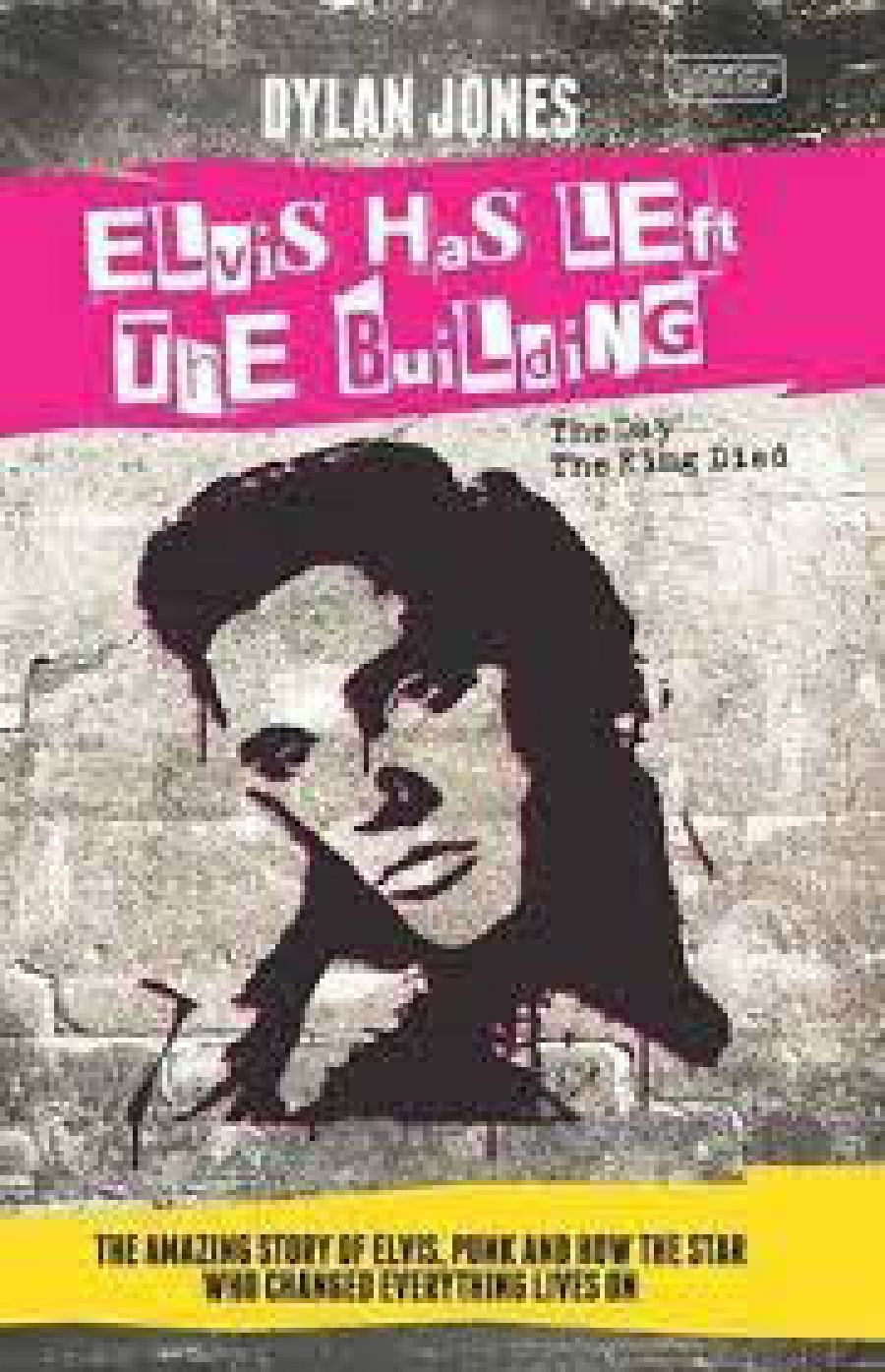
- Free Article: No
- Contents Category: Music
- Review Article: Yes
- Article Title: A piece of Presley
- Online Only: No
- Custom Highlight Text:
Usually the subject’s death signals the end of a biography, but for Dylan Jones it is the starting point. Three decades after his death in 1977, Elvis Presley has proven even more ubiquitous, and lucrative, than he was in life. When he died – with the official cause listed as heart failure, but a vast cocktail of drugs playing an undeniable role – his manager, ‘Colonel’ Tom Parker, declared, ‘Why, I’ll go right on managing him.’ And from there Parker helped set the template for a superstar entertainer’s posthumous success.
But that’s not all that Jones, who is Editor of GQ, is interested in here. In truth, it can be difficult to pin down just what he is trying to add to the oversaturated conversation about Presley. Elvis Has Left the Building bears the tagline ‘The extraordinary story of how the rock star who changed everything lives on’, yet Jones takes a more roundabout approach in this book. Jones is a sharp and affable writer, but the book has little in the way of sustained focus. He flits between various themes and anecdotes, and even dips in and out of autobiography.
- Book 1 Title: Elvis Has Left the Building
- Book 1 Biblio: Bloomsbury, $29.99 pb, 312 pp
A study limited strictly to Presley’s posthumous influence would certainly have been worthwhile, but Jones tries for more than that and ends up with less. He returns repeatedly to unenlightening ‘what if?’ scenarios that imagine Presley reinventing or updating himself with the changing times, whether he had lived longer or made more adventurous decisions while alive. He pictures Presley singing David Bowie’s ‘Fame’ (1975) on television’s Soul Train, and covering The Rolling Stones’ disco experiment ‘Miss You’ (1978). He mentions a planned Presley television series that never got off the ground and asks, ‘Who’s to say it wouldn’t have become the longest-running variety show in the history of American television?’
 Elvis Presley, 1970 (photograph by Ollie Atkins)
Elvis Presley, 1970 (photograph by Ollie Atkins)
Such conjecture does not shed much light on Presley’s actual legacy, and Jones shows similar indulgence by including an eight-page transcript of a press conference Presley did in 1972, rather than just offering valuable extracts. Likewise, he quotes long portions of Frank Sinatra’s monologues from Las Vegas performances as a way to contrast him with Presley, but it is superfluous information. More relevant, yet still an odd choice, is a final chapter that examines Presley’s fifty best recordings, according to Jones. It is really more of an afterthought, and primarily it feels like Jones getting sidetracked once again.
There are revealing moments here, delivered mostly as scattershot anecdotes. Jones notes Presley’s impact on everyone from Led Zeppelin’s Jimmy Page and The Beatles to Bob Dylan and Bruce Springsteen. Paul McCartney describes hearing ‘Heartbreak Hotel’ as a ‘magical moment’ and now owns the double-bass played on the recording, while Bowie gushes, ‘It wasn’t just the music that was interesting. It was everything else. And he had a lot of everything else.’
Beyond the tacky souvenirs and enduring lore about Presley faking his own death, his music itself continues to hold sway over pop culture. He has had posthumous hits with both remixes (like Junkie XL’s souped-up 2002 dance version of 1968’s ‘A Little Less Conversation’) and reshuffled releases (like ELV1S: 30 #1 Hits, from the same year), and there is a new covers collection this year entitled Elvis Sings. Bowie wrote ‘Golden Years’ (1976) for Elvis, who turned it down, while Springsteen wrote ‘Fire’ (1977) as a posthumous tribute. The Beatles used to strive for ‘the Elvis Echo’ on songs like ‘A Day in the Life’. Elvis Costello and The Troggs’ Reg Presley each salute him with their stage names. Film director John Carpenter wrote him a script that never got made.
Jones spends a lot of time returning to the British punk scene that was surging just as Presley died. Although Sex Pistols frontman Johnny Rotten and other punks actually celebrated his death at the time, Sex Pistols later covered Presley’s 1977 single ‘Way Down’. The Clash paid clear homage to Presley’s 1956 self-titled début album with the cover design of their 1979 album London Calling. As Jones writes of most early punk acts (and devotees), ‘Dismissing the past was the same as dyeing your hair: a ruse to get noticed.’
In the end, Jones seems more interested in the forces that held Presley back in his life than in those that ensured his artistic immortality. ‘By the mid-Seventies Elvis was already imitating himself – in truth he was actually the first fake Elvis,’ he writes, alluding to hordes of Presley impersonators. He points to the star’s sheltered life after his initial role in defining rock’n’roll, ‘living out Groundhog Day at Graceland’.
While Presley’s personal tribulations and off-beat career decisions – like sending his Cadillac to tour Australia and New Zealand in his stead – make for an entertaining read, they are more distracting than instructive. Jones casts his net as widely as he can, spending too much time skipping around through Presley’s life and sharing different people’s reactions to his death.
He also is not immune to such platitudes as ‘Suddenly, rock’n’roll was here to stay’ and ‘Time was what Elvis didn’t have’. And while he spends most of the book explaining Presley’s appeal, Jones regards the posthumous sale of pewter Presley figurines with confusion: ‘Why anybody would want them is unfathomable.’ Surely he knows the answer: because everyone wants a piece of Elvis, then and now.


Comments powered by CComment